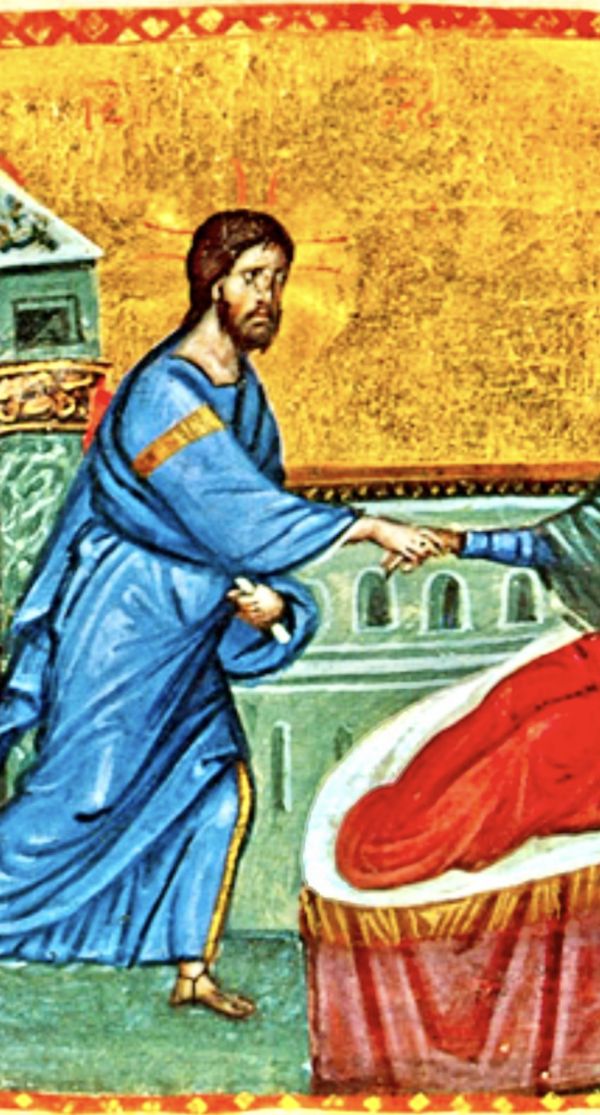New life-wave
(Mk 1:29-39)
The Lord does not admit the misunderstanding of a faith that reduces him to the same level as acclaimed santons and healers (vv.34b.36-38).
Too many seek him just for this, even the closest followers (vv.29.36b), but the Son of God prevents his intimates the popular chatter [alway on the prowl] hunting for the extraordinary (vv.34b.37).
It is adherence to his lifestyle that helps to recover (vv.30-34a).
For evangelized people who become announcers, keeping oneself upright is linked to an evolving Faith, therefore to an attitude of renewal (vv.38-39).
Already in the synagogue the Lord had stirred the waters of quietism.
So He doesn’t miss the opportunity to "touch" a woman [at that time, a non-person] and make himself legally impure through direct contact with the sick.
Moreover, no rabbi would ever let himself be served by a woman.
In short, Jesus puts into question not only theology, but upset the assumptions of human and spiritual relationships.
Only ‘service’ counts, in all the ancient conception considered unworthy thing for a perfect development of the personality.
Especially in the classical mentality, characteristic of the human being was the domination and the estrangement to every sense of neighbour.
Then, in this upheaval, the disciples' idea to talk directly to Jesus about the difficulties they cannot provide for is excellent (v.30b).
Faced with problems, imbalances, needs of one's own and others - before rushing to come up with rough solutions - addressing the Lord is the most sensible choice to make, for a basic healing.
Non-life presuppositions make us prisoners, unable to move towards God and the brothers.
In Christ we are called to introduce the blockages of those who are narrowed by difficulties, into a new condition.
The suffocated energy bubble that compresses us characterizes humanity even of the past, and re-proposes itself.
In short, the attendance of places of prayer (v.29) must lead us - like Jesus - to ignore some laws of purity, if dehumanizing.
Non-negotiable principle of the Gospels is the real good of concrete women and men, as they are and where they are.
While succeeding, we will reject the temptation to success (v.35).
Last note on Mk’s brushstroke about the story of Peter’s mother-in-law, who finds her unexpressed virtues thanks to contact with the person of the Lord.
Icon of a still narrowing mental model, which stifles the youth of being and doing.
In the soul of the ancient people, the disregarded, stifled, denied, unused talents had become hardships.
Now Christ the Present cares for such "inflammations". We are no longer made ‘mute’ and ‘dependent’ on the situation or inherited mentality.
And «relieved» in caring for oneself and others, the return to fluid life becomes easy, even with minimal gestures.
The intimately taut or suffocated resources - that appealed us with tightness in the chest - surface, and dilate also in favour of others.
The "mother-in-law" once lying down, breathes and overcomes ageing. She rediscovers and expresses her skills.
This is the healing action of Jesus, all at the gates of each one.
[Wednesday 1st wk. in O.T. January 15, 2025]












